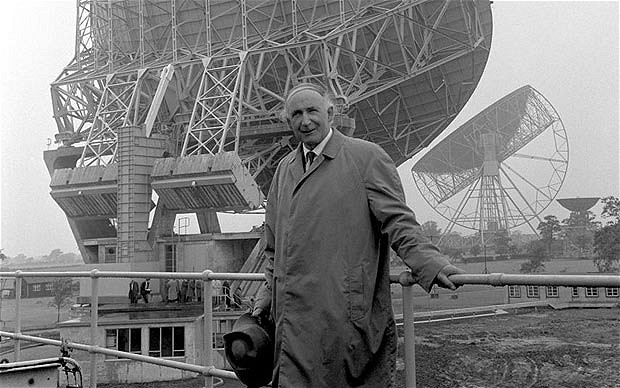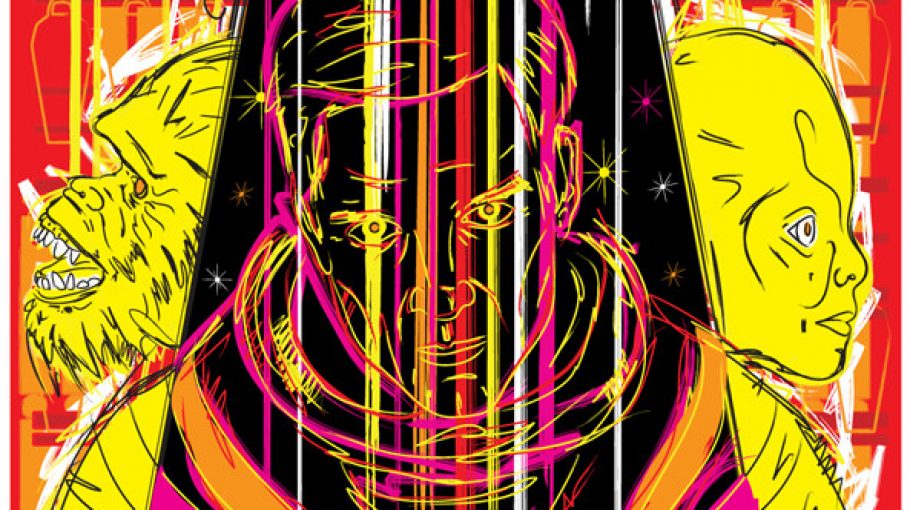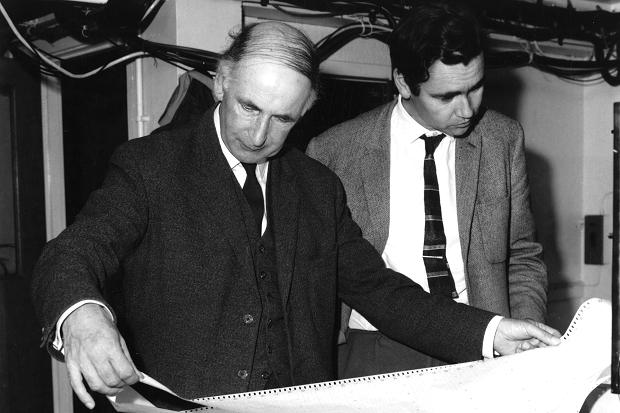The Kubrick Connection
Mon 29 Sep 2014“It would, I think, be true to say that amongst many scientists there is a belief that life must be widespread in the universe” – Sir Bernard Lovell
Abandon Normal Devices is excited to announce that Anthony Frewin, personal assistant to Director Stanley Kubrick for over two decades and representative of the Kubrick Estate, will be joining us on Fri 03 Oct at Jodrell Bank Observatory to introduce our screening of 2001: A Space Odyssey.
The connection between this sci-fi masterpiece and world renowned site of scientific research began in 1966, when during pre-production of the film Kubrick’s team visited Jodrell Bank to interview its founder, Sir Bernard Lovell.
Lovell was one of 21 scientists and leading thinkers, including writer Issac Asimov and anthropologist Margaret Mead, who Kubrick identified to comment on the film’s thematic content. He was particularly concerned with their thoughts on extra-terrestrial intelligence as a legitimate scientific question; a departure from the popular opinion of the era, which branded the possibility of alien life as an outlandish, B-movie fantasy.
“Before then, if you spoke of extra-terrestrial intelligence people would have simply said ‘what, flying saucers?’ and all that nonsense” – Tony Frewin
Kubrick’s assistant Roger Caras travelled around the world to film these interviews, with the original intention that they would be used as a prologue to the feature film “…to help the audience realise that the basic subject matter is not fantasy but possible if not probable fact”. But as 2001: A Space Odyssey grew longer and longer, the interview footage was first cut, then forgotten and finally lost.
Thankfully for curious minds, a transcript survived, and with kind permission from Tony Frewin and the Kubrick Estate, we are now able to share excerpts of the questions Kubrick posed to Lovell and explore the meeting of those two great minds nearly half a century ago.
In the full interview, Lovell describes the state of knowledge in 1966 (three years before mankind set foot on the moon) on the scale of the Universe, the vast numbers of stars, the question of how many planets might exist, and whether life might have evolved elsewhere.
The selection below offers an insight into Lovell’s opinions and expertise, but doesn’t reproduce this fascinating transcript in its entirety.
LOVELL: It would, I think, be true to say that amongst many scientists there is a belief that life must be widespread in the universe. Of course, we live in an age where a definitive answer may soon be obtained to this great problem.
CARAS: If the life condition exists on a planet other than Earth and life in fact evolves there or occurs there can you envision it?
LOVELL: It is not known whether the ultimate and necessary consequences of any form of evolution must be intelligent life. It is presumed that the evolutionary trend along which life has taken on Earth does necessarily end up in some degrees of consciousness.
But of course the extent of the development of consciousness with time is entirely unknown… to such an extent that we can have very little conception on Earth of the degree of intelligence and conscious which might have been reached, or indeed, to the relation of that kind of consciousness to which we understand ourselves.
CARAS: Do you believe there has been an effort to contact Earth by radio?
LOVELL: The question as to whether any efforts have been made to contact Earth by radio can’t really be answered. We are considering the possibility of there being civilisations in the universe which have existed in a degree of consciousness for many thousand or tens of thousands or even 100, 000 years longer than Earth civilisation. Their interest and techniques would therefore have reached a degree which it is impossible for us to conceive.
It may be said that they would know all about us and would regards as futile the possibility of communicating with us or would have given up the attempts many hundreds of years ago when they found we were not in a fit state to respond.
 CARAS: Is there any reason to believe that Earth may have been visited at any time in the past?
CARAS: Is there any reason to believe that Earth may have been visited at any time in the past?
LOVELL: As far as I know there is no reason to believe that there has been any visitation of Earth and I think it can be taken with a fair degree of certainty – remembering that in our case it would require a journey of five or ten years with the speed of light before we could reach another such civilisation,
Perhaps by the time we have achieved this technological capability, we would have lost interest in the chance of acquiring contacts with other civilisations.
CARAS: Could you possibly speculate on what might it be like if our civilisation were not ten thousand years old, but one million and ten thousand years old?
LOVELL: I think this is impossible to speculate on usefully on a scientific basis because of the rapidity of the advance of science. It would be regarded as science fiction and to be asked to speculate over such an extremely long period I think cannot be done from a scientific basis.
I would say, however, that apart from the relevant immaterial sense, it is my opinion that the question which would have to be considered most carefully would be the possibilities of changes to the human being, artificial changes to the human being, particularly the human brain.
The possibilities there are the transfer of memory, for example, which would raise possibilities which at the present time are not only rather frightening but almost inconceivable as far as their consequences are concerned.
Kubrick at Jodrell Bank
Over the Watch the Skies! weekend, we will project onto the Lovell Telescope a specially commissioned film created by Soup Collective, which responds to Lovell’s interview and the role of Jodrell Bank.
The film will include rarely seen archive footage of the construction of the telescope, its work in space tracking and current staff from Jodrell Bank reading extracts from the transcript.
The premiere of this commission will be followed by a screening of 2001: A Space Odyssey, bringing Kubrick’s provocative masterwork back to Jodrell Bank and asking the still unanswered question “Are we alone?”.

